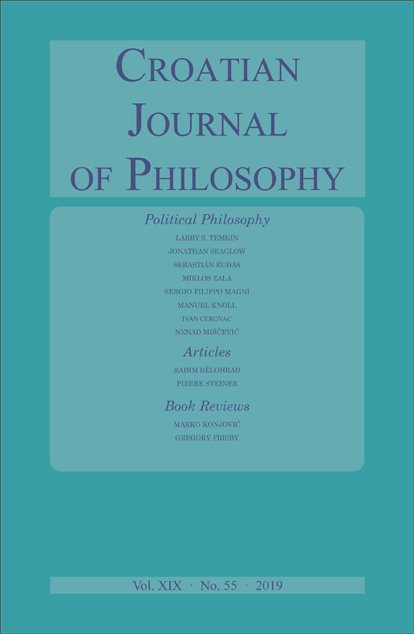Laborde’s Liberalism’s Religion: The Problem of Religious Exemptions
Laborde’s Liberalism’s Religion: The Problem of Religious Exemptions
Author(s): Miklos ZalaSubject(s): Ethics / Practical Philosophy, Political Philosophy, Philosophy of Religion, Politics and religion
Published by: KruZak
Keywords: Liberalism and religion; religious accommodation; religious exemptions; multiculturalism; disability accommodation;
Summary/Abstract: In this paper, I critically examine Cécile Laborde’s Liberalism’s Religion and argue that her approach to religious exemptions faces significant difficulties. I first highlight some methodological disagreements with Laborde’s theory. I raise concerns about her theory’s ‘two-pronged’ structure being too narrow. Moreover, Laborde’s ‘disaggregation approach’ promises a context-sensitive, bottom-up theory of exemptions which examines exemption claims on a case-by-case basis, but instead offers a top-down theory that provides an idealized explanation for potentially all religious exemption cases. I argue that a non-ideal approach which does not offer an overarching explanation of exemptions is preferable to Laborde’s. Next, I discuss further problems with Laborde’s theory, which concern her assumption that if there is something ‘ethically salient’ about religious practices, it must be located at the personal level. Laborde claims that if we want to ascertain the ethical salience of a practice, we must focus on the relationship between the person and her commitments. But this individualistic focus cannot always account for why we want to accommodate religious practices. Such practices, I claim, are sometimes accommodated not on an individual, but on a group-based rationale. Finally, I address Laborde’s dismissal of the analogy between religion and disability.
Journal: Croatian Journal of Philosophy
- Issue Year: XIX/2019
- Issue No: 55
- Page Range: 55-69
- Page Count: 15
- Language: English
- Content File-PDF

